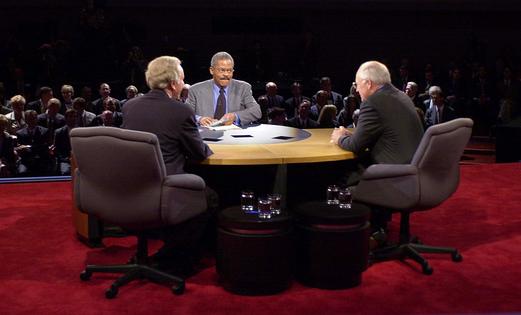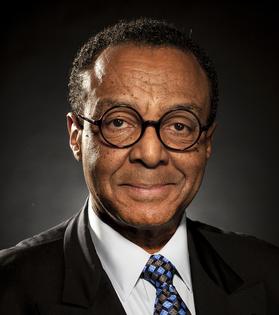Bernard Shaw, a Trailblazing Icon Who Knew When to Leave the Microphone
As a journalist, Bernard Shaw was an iconic pioneer who hated to be called “iconic.”
Yet, as far as I was concerned, the label fit. He turned his name, along with that of his employer CNN, into strong brands before branding in today’s marketing jargon was cool outside of a cattle ranch.
I search for apt descriptions now because the award-winning retired CNN anchor and Chicago native is no longer with us. Bernard Shaw died at the age of 82 on Wednesday of complications from pneumonia in a Washington hospital, his family announced, and there was hardly a dry eye in our house when we heard the news.
Shaw was the first chief anchor at Atlanta business mogul Ted Turner’s risky new venture called CNN in 1980. Although it might not look all that risky at all in today’s crowded media environment, back then the idea of expanding TV network news to 24/7 from its traditional 30 minutes, five nights per week, seemed about as distant as, say, electric cars.
But CNN made it work well enough to inspire Fox News and MSNBC and whatever the YouTube era comes up with next — and Bernard Shaw, as principal anchor, was in the precarious position of making it work or perhaps taking the blame if it didn’t.
It took a big story, in this case the Iraq War, to turn CNN into must-see TV in the early ‘90s, and what we saw was largely Bernie, along with their crackerjack international news team.
As Baghdad came under attack from U.S. forces in January 1991 during Operation Desert Storm, Shaw’s calm steady voice describing the rockets’ red glare outside their hotel window would be favorably compared to Edward R. Murrow and Walter Cronkite, two of Shaw’s broadcast role models.
“He had the microphone first,” fellow CNN reporter Peter Arnett, who also was in the room, would later recount. “The instinct to broadcast, to be there. He didn’t waiver. He didn’t hesitate.”
Shaw is also remembered famously for asking Democratic presidential candidate Michael Dukakis a question during a 1988 presidential candidates’ debate that stirred controversy for the way it brought Dukakis’ wife into the back-and-forth: “Gov. Dukakis, if Kitty Dukakis was raped and murdered, would you favor an irrevocable death penalty for the killer.”
Although many, particularly Democrats, were upset by the bluntness, it probably was Dukakis’ robotic response, heavy on logic, light on feelings, that cost him more votes while Shaw’s credibility remained largely intact.
...continued
(c) 2022 CLARENCE PAGE DISTRIBUTED BY TRIBUNE MEDIA SERVICES, INC.










